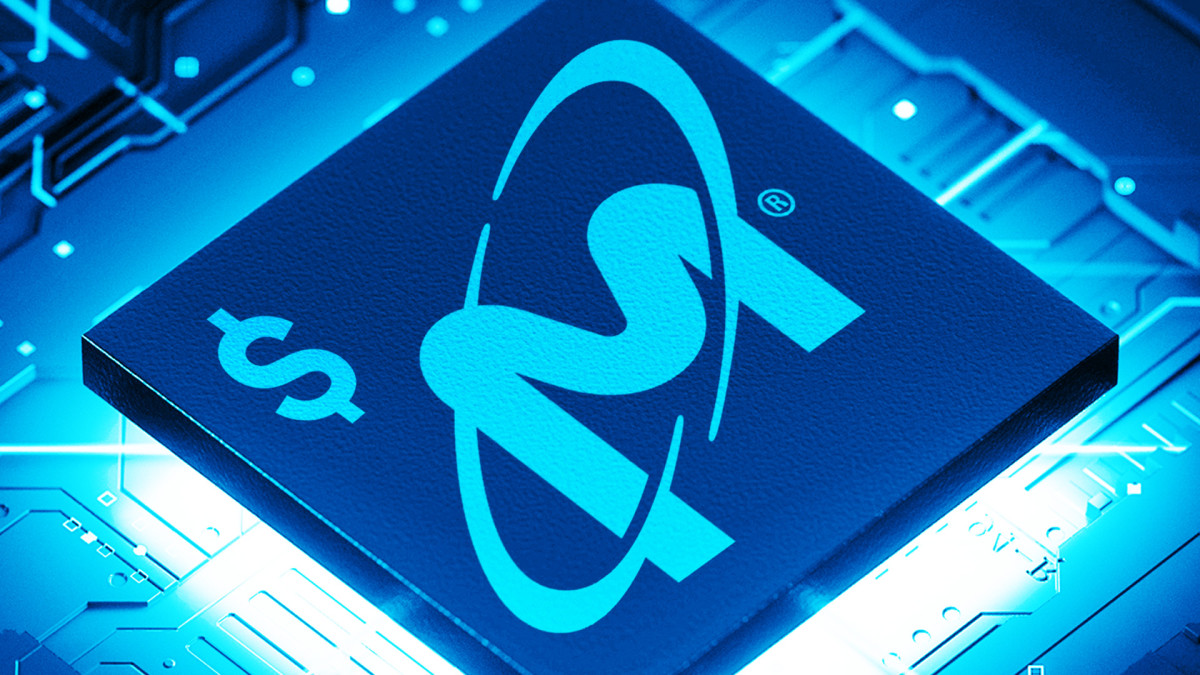
It was a very dark day in December for Micron Technology (MU) .
Two years ago, with the Christmas holiday right around the corner, the artificial intelligence memory-chip maker said it would reduce its headcount 10% and suspend bonuses for the coming year.
Related: Analysts revisit Micron stock price targets ahead of Q3 earnings
The restructuring plan was "in response to challenging industry conditions," the Boise, Idaho, company said in a Securities and Exchange Commission filing.
Micron, which had missed estimates for its first-quarter 2023 results, also said it expected a $30 million charge related to the restructuring. And Micron planned to suspend its stock-buyback program.
Chief Executive Sanjay Mehrotra said that there was too much memory supply and not enough demand, resulting in the company keeping more inventory and losing pricing power.
Now we move ahead to this past June, when Micron beat Wall Street's third-quarter expectations. Mehrotra stated that “robust AI demand and strong execution enabled Micron to drive 17% sequential revenue growth, exceeding our guidance range in fiscal Q3."
Despite the solid results, however, Micron's shares fell. TheStreet Pro's Ed Ponsi noted at the time that "revenues, while coming in higher than expected at $6.81 billion, didn’t exactly blow away the estimate of $6.67 billion ... pretty good, but not great."

Micron CFO: 'company in strongest position'
Ponsi said the issue with Micron lay in the current quarter as the company’s $1.08 estimate for earnings per share was only slightly higher than Wall Street’s expected result of $1.05, while the revenue estimate of $7.6 billion was right in line with consensus analyst estimate.
"Frankly, I don’t believe anything is wrong with Micron," Ponsi said in his June 28 column. "I believe Wall Street analysts, spoiled by outliers like Nvidia (NVDA) , have created overly aggressive projections."
Related: Analysts adjust Micron Technology stock price target ahead of earnings
"By presenting figures that are close to or in line with analysts’ estimates, Micron could simply be managing expectations," he added.
And now we come to Aug. 7, as Micron said in another SEC filing that it was resuming the stock repurchase "in light of improved conditions."
"The company maintains its commitment to further strengthening its balance sheet and sustaining its investment grade credit rating," Micron said in the filing.
MU shares were up 2% at last check and Micron's stock is up 30% from a year earlier.
The SEC filing was signed by Chief Financial Officer Mark Murphy, who spoke at the KeyBanc Capital Markets Technology Leadership Forum two days earlier.
"Both the NAND and DRAM markets overall are on an upward trajectory towards what we believe will be a record substantial revenue record for Micron in our fiscal 2025 and with significantly improved profitability," Murphy said at the event.
"Micron is in the strongest position it's ever been in with our technology leadership and product portfolio."
DRAM is the main system memory like RAMs, which stores data temporarily to run system operations, while NAND is used in solid state drives and USB flash drives to store data permanently, according to Computing Worlds.
Murphy said data-center demand remains very robust, driven by artificial-intelligence server units and also a recovery in traditional server units.
Analyst concerns about demand
The executive noted that retail consumer markets in China have weakened and consumer "buying patterns are weak or uneven at best." He trimmed Micron's first-quarter outlook to flat bit shipments quarter-over-quarter compared with prior expectations of modest sequential growth.
As a result, KeyBanc analyst John Vinh lowered the firm's price target on Micron to $145 from $165. He affirmed an overweight rating on the shares.
More AI Stocks:
- Nvidia stock tumbles in tech slump amid questions over key chip
- Microsoft exec warns of an ongoing problem
- Apple earnings top forecasts, iPhone sales slip ahead of AI launch
Murphy said customers in PC/smartphones had prebuilt inventory, while demand in auto, industrial, and consumer end markets was weak.
As a result, pricing was weaker than expected and therefore the company has walked away from less favorable deals.
KeyBanc noted that Micron has succeeded in closing the technology gap with the South Korean electronics giant Samsung. Asked about the rival company at the presentation, Murphy declined comment.
"We assumed that Samsung will be in the market and successfully deploy products," he said.
The competition may be heating up. Reuters reported that a version of Samsung’s fifth-generation high bandwidth memory chips, or HBM3E, has passed Nvidia's new tests for use in its AI processors.
The qualification clears a major hurdle for the world's biggest memory-chip maker, which has been struggling to catch up with local rival SK Hynix in the race to supply the advanced memory chips capable of handling generative-AI work.
Samsung and Nvidia have yet to sign a supply deal for the approved eight-layer HBM3E chips but will do so soon, Reuters said, citing sources briefed on the results. The sources added that they expect supplies would start by the fourth quarter of 2024.
Related: Analysts adjust Palantir stock price target ahead of earnings







